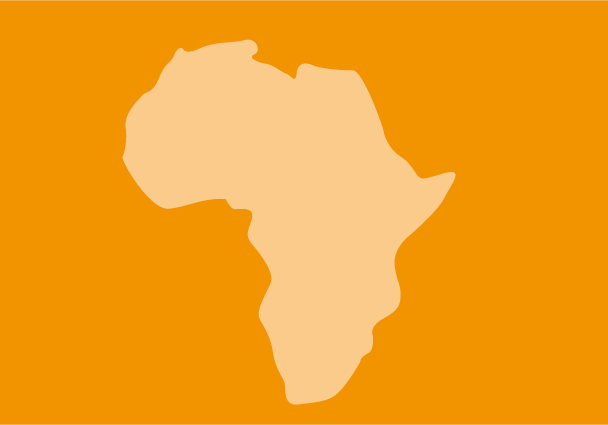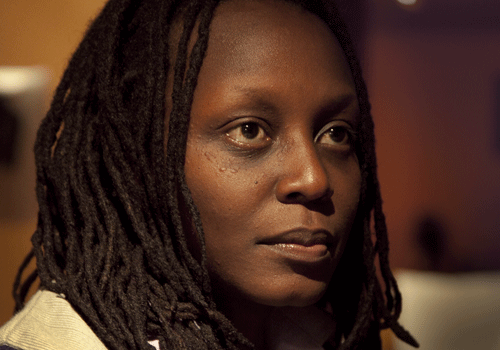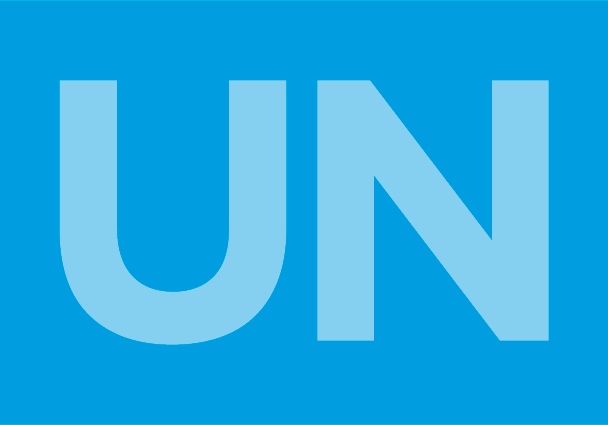
Nigeria and Uganda: new laws herald further persecution based on sexual orientation and gender identity
The ICJ is profoundly concerned at the recent enactment of legislation in Nigeria and Uganda that heralds further persecution based on sexual orientation and/or gender identity.
On 24 February 2014, Uganda’s President, Yoweri Museveni, gave his assent to the Anti-Homosexuality Bill recently adopted by the Uganda Parliament by signing it into law.
His Nigerian counterpart, President Goodluck Jonathan, had signed the Same Sex Marriage (Prohibition) Bill into law on 7 January this year.
In both countries pre-existing legislative provisions already criminalized consensual same-sex sexual activity in private in contravention of international human rights law and standards, including the Universal Declaration of Human Rights, the International Covenant on Civil and Political Rights and the International Covenant on Economic, Social and Cultural Rights.
These core global instruments each affirm the universal and inalienable rights to human dignity, equality and non-discrimination.
“Carnal knowledge…against the order of nature,” for example, was already a criminal offence in both Nigeria and Uganda, carrying, upon conviction, maximum sentences of 14 years’ imprisonment in the former and life imprisonment in the latter.
The new Nigerian legislation makes people of the same gender who contract a marriage or civil union liable upon conviction to 14 years’ imprisonment.
Further, it makes criminally responsible anyone who “administers, witnesses, abets or aids” a same-sex marriage or civil union ceremony, rendering those found guilty of the offence liable to 10 years’ imprisonment.
It also outlaws the registration, activities and funding of any “gay” organization, making them offences attracting 10 years’ imprisonment upon conviction.
In Uganda, the new law, among other things, explicitly criminalizes consensual same-sex conduct between women and makes it an offence for people to discuss and be open about their sexuality.
Further, it criminalizes “homosexuality”, “aggravated homosexuality” and same-sex marriages, all of which carry sentences of life imprisonment upon conviction.
Moreover, it makes it a criminal offence to make available information about sexual orientation, safe sex and gender identity. Renting premises to those who may “practice homosexuality” is also a crime.
The ICJ considers that laws or regulations that directly or indirectly criminalize consensual same-sex sexuality or conduct provide State actors with the means to perpetrate human rights violations, including through harassment, extortion and discriminatory “criminal” investigations, prosecutions, trials and imprisonment.
Equally, these laws enable non-State actors to persecute with impunity individuals based on their real or perceived sexual orientation and/or gender identity.
Indeed, laws that criminalize same-sex consensual sexual activity contribute to an atmosphere of State-supported homophobia and transphobia and serve as both the motivation and justification for harassment, extortion and physical abuse of people based on their real or attributed sexual orientation and/or gender identity by non-State actors.
In the circumstances, not only is cruel, inhuman or degrading treatment at the hands of non-State actors on the basis of real or perceived sexual orientation and/or gender identity not prevented, but such treatment and other human rights abuses are fostered when the authorities enact laws criminalizing consensual same-sex sexuality or conduct.
Overall, the existence of such laws works to deprive individuals who are, or are perceived to be, lesbian, gay, bisexual, transgender or intersex of adequate protection from violence and discrimination, including police protection and judicial redress.
This makes the provision of effective protection by State authorities extremely unlikely if not altogether impossible given that extending such protection would in turn be tantamount to aiding and abetting the perpetration of the very acts that such laws criminalize.
Putting the same point another way: protection is neither effective nor available when laws criminalizing consensual same-sex sexual relations or acts exist, because the individuals who need protection would effectively be outing themselves to the authorities should they decide to seek protection from them.
Accordingly, the existence of these laws entails a real risk of violations of the right to life, to liberty and security of the person, and to mental and physical integrity.
In light of the above, the ICJ considers that Uganda’s Anti-Homosexuality Act and Nigeria’s Same Sex Marriage (Prohibition) Act contravene each country’s respective Constitution and their international treaty and customary law obligations by which both countries are bound.
In particular, the Acts directly violate the right to dignity; equality, including equality before the law and equal protection of the law; non-discrimination; liberty and security of person; privacy; opinion and expression; association and peaceful assembly; and the right to access health services and care without discrimination.
Both pieces of legislation also undermine and criminalize the critical work of human rights defenders and civil society organizations that seek to combat discrimination and persecution based on sexual orientation and/or gender identity.
They also have very serious public health implications, including, for example, as a result of the fact that they hinder the prevention and treatment of HIV/AIDS.
The UN High Commissioner for Human Rights, Navi Pillay, has strongly denounced both pieces of legislation.
In relation to the Nigerian law, the High Commissioner said: “rarely have I seen a piece of legislation that in so few paragraphs directly violates so many basic, universal human rights”.
She further noted that the legislation “purports to ban same-sex marriage ceremonies but in reality does much more.
It turns anyone who takes part in, witnesses or helps organize a same sex marriage into a criminal. It punishes people for displaying any affection in public towards someone of the same sex.
And in banning gay organizations it puts at risk the vital work of human rights defenders who speak up for the rights of lesbian, gay, bisexual, transgender (LGBT) and intersex people”.
In his reaction to the enactment of the Nigerian legislation, the Executive Director of UNAIDS, Michel Sidibé, expressed concern that: “The provisions of the new law in Nigeria could lead to increased homophobia, discrimination, denial of HIV services and violence based on real or perceived sexual orientation and gender identity … It could also be used against organizations working to provide HIV prevention and treatment services to LGBT people.”
In relation to the Ugandan legislation, the High Commissioner said: “Disapproval of homosexuality by some can never justify violating the fundamental human rights of others” adding that the law “will institutionalise discrimination and is likely to encourage harassment and violence against individuals on the basis of their sexual orientation. It is formulated so broadly that it may lead to abuse of power and accusations against anyone, not just LGBT people.”
The ICJ urges the Nigerian and Ugandan authorities to urgently repeal the new legislation, as well as the pre-existing legislative provisions criminalizing consensual same-sex sexual activity in private.
Contact:
Livio Zilli, ICJ Senior Legal Adviser, Sexual Orientation and Gender Identity Programme, t +41 22 379 3823; email: livio.zilli(a)icj.org

Uganda: the ICJ condemns the reintroduction of Anti-Homosexuality Bill in Parliament
The ICJ condemns the reintroduction of Anti-Homosexuality Bill in the Ugandan Parliament. The bill has passed out of committee and is expected to come to a floor vote in early December.
According to reports from civil society organizations in Uganda, the bill still contains the death penalty for acts of “aggravated homosexuality.”
In addition, the Anti-Homosexuality Bill criminalizes the promotion of homosexuality, which is defined to include all advocacy activities.
“Adopting the Anti-Homosexuality Bill would be a serious threat to the human rights and human dignity of LGBT individuals and organizations,” said Alli Jernow, Senior Legal Adviser at the ICJ. “Under the Bill, not only might someone face life in prison or the death penalty for being gay, but human rights defenders would also be prevented from speaking out to challenge the law.”
Under the Bill, anyone in authority, such as a teacher or medical professional, who fails to report an offence to law enforcement within twenty-four hours, is liable to three years’ imprisonment.
The ICJ says the bill is dangerous and deadly and urges Parliament to reject it.
Parliament must also reaffirm the rights to non-discrimination, privacy, freedom of expression and freedom of association for all Ugandans, the ICJ adds.
The Anti-Homosexuality Bill has already been used to justify a general clampdown on civil society in Uganda.
Meetings and workshops have been disrupted and advocacy groups working on human rights have been threatened.
In February 2012, the Minister of State for Ethics and Integrity, Simon Lokodo, shut down a capacity-building session for LGBT activists organized by Freedom and Roam Uganda (FARUG) at a hotel in Entebbe and threatened to arrest FARUG’s executive director Kasha Jacqueline Nabagesera (picture above).
In June 2012, police raided a workshop for East African LGBT human rights defenders that had been organized by the East and Horn of Africa Human Rights Defenders Project and they detained participants for several hours.
Minister Lokodo also told the press that he was going to ban 38 organizations that were “sympathetic to LGBT people.”
“If adopted, the bill would clearly violate the human rights of all Ugandans,” Jernow added.
International human rights law, including treaties to which Uganda is a party, prohibit the criminalization of same-sex sexual conduct and forbid the imposition of the death penalty for non-violent conduct, including sexual relations between consenting adults.
International human rights law also guarantees the right of everyone, regardless of sexual orientation or gender identity, to freedom of expression, association and peaceful assembly.
Contact:
Alli Jernow, ICJ Senior Legal Advisor, t + 41 22 979 3823 ; e-mail: alison.jernow(at)icj.org

ICJ oral intervention on the adoption of the outcome document of the Universal Periodic Review of Uganda
During the 19th session of the Human Rights Council, the ICJ made an oral statement during the Council’s consideration and adoption of the outcome document in the Universal Periodic Review of Uganda.
The statement focussed on the lack of human rights protection and respect for the rule of law in the country, particularly as this affects human rights defenders, and called on the Government of Uganda to end impunity for gross human rights violations, and to ensure that the Anti Homosexuality Bill is not adopted into law.
Uganda-oral intervention UPR-advocacy-2012 (full text in English, PDF)




